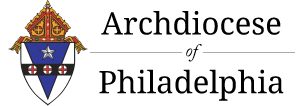January 22 marks the 41st anniversary of the Supreme Court’s Roe v. Wade decision, legalizing abortion on demand. Thanks to Roe, abortion has killed more than 50 million unborn children over the past four decades – the equivalent of roughly one in six living Americans; an entire generation extinguished. But alongside the killing spree, and despite the contempt of abortion activists and unfriendly media, the prolife counter-witness of millions of Americans has also continued.
The “March for Life” this January, like every January over the past several decades, reminds the nation that killing an unborn child is never a private matter. Abortion is a uniquely intimate form of violence – but violence with bitter public consequences. Catholics eagerly join the March for Life each year because we believe in the God of life and joy; a God who creates every human being with innate dignity and rights, including above all the right to life.
And in an election year, as in every year, that bears closer reflection.
What we really believe, we conform our lives to. And if we don’t at least try to conform our lives to what we claim to believe, then we’re fooling only ourselves, because God cannot be fooled. When we claim to be “Catholic” but then don’t advance our beliefs about the sanctity of the human person as the basis of law, it means one of two things. We’re either very confused, or we’re very evasive.
All law involves the imposition of somebody’s beliefs about the nature of truth, charity and justice on everyone else. That’s the reason we have marches, debates, elections and Congress – to peacefully turn the struggle of ideas and moral convictions into laws that guide our common life.
We need to remember that in the early Church, the words “Jesus is Lord” were – unintentionally but profoundly – a political statement. The emperor claimed to be Lord both in the private and public lives of the citizens of the empire. When Christians proclaimed Jesus as Lord, they were proclaiming the centrality of Jesus not only in their personal lives, but in their public lives and decision-making. That took courage. And it had huge consequences for their lives. Jesus was hung upon the cross because of his claim of Lordship. Christianity was illegal for the first 250 years of the Church’s life because Christians proclaimed, “Jesus is Lord.”
The President of our country deserves our respect, but he is not “Lord.” Our political parties, whether Democratic or Republican, are not “Lord.” Congress is not “Lord.” The Supreme Court that gave us Roe and sacralized the right to kill unborn children is not “Lord.” None of these people or things is Lord. Only God is God, and only Jesus Christ is Lord. And Christ’s relationship with each of us as individuals, and all of us as the believing Catholic community, should be the driving force of our personal lives and for all of our public witness, including our political witness on matters of human dignity.
“God” need not be on our lips every minute of every day. But he should be in our hearts from the moment we wake, to the moment we sleep. Only Jesus is Lord. The Church belongs to him; not to us, but to him. And we should never allow ourselves to be pushed from the public square by those who want someone else, or something else, to be Lord.
There’s a very old Christian expression that goes like this: “Hope has two beautiful daughters. Their names are anger and courage; anger at the way things are, and courage to see that they do not remain the way they are.”
Are we troubled enough about what’s wrong with the world — the killing of millions of unborn children through abortion; the neglect of the poor, the disabled and the elderly; the mistreatment of immigrants in our midst? Do we really have the courage of our convictions to change those things?
The opposite of hope is cynicism, and cynicism also has two daughters. Their names are indifference and cowardice. In renewing ourselves in our faith, what Catholics need to change most urgently is the lack of courage we find in our own personal lives, in our national political life, and sometimes even within the Church herself.
Every year in these weeks between the end of Christmas and the beginning of Lent, I reflect on what the Church means when she talks about the season of “ordinary time.” Ordinary time is where we spend most of our lives – raising families, doing our jobs, helping others, making the daily choices that shape the world around us. Ordinary time is the space God gives us to make a difference with our lives. What we do with that ordinary time – in our personal choices and in our public actions — matters eternally.
As Alexander Solzhenitsyn once wrote, “the line separating good and evil runs not through states, nor between classes, nor even between political parties, but right through the center of each human heart, and every human heart.” That includes you and me.
Next week hundreds of thousands of good people will march for life in Washington. It’s an opportunity to prove the strength of our convictions; to show to the world what we really believe about the sanctity of human life. I’ll be there. And I ask you to join me.
Editor’s Note: Columns will be published each week on www.CatholicPhilly.com and can also be found at https://archphila.org/archbishop-chaput/statements/statements.php.
Contact
Kenneth A. Gavin
Director of Communications
215-587-3747






